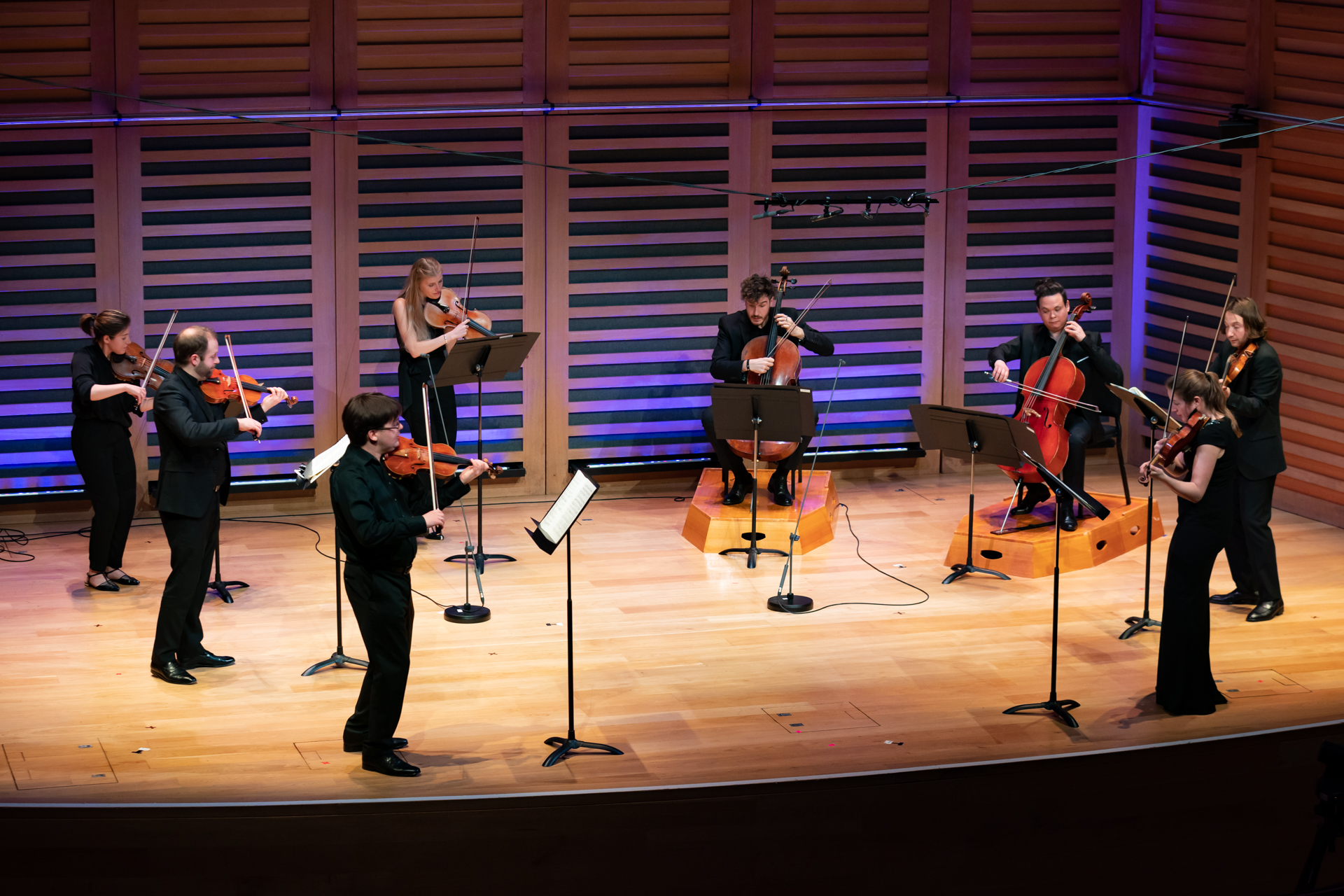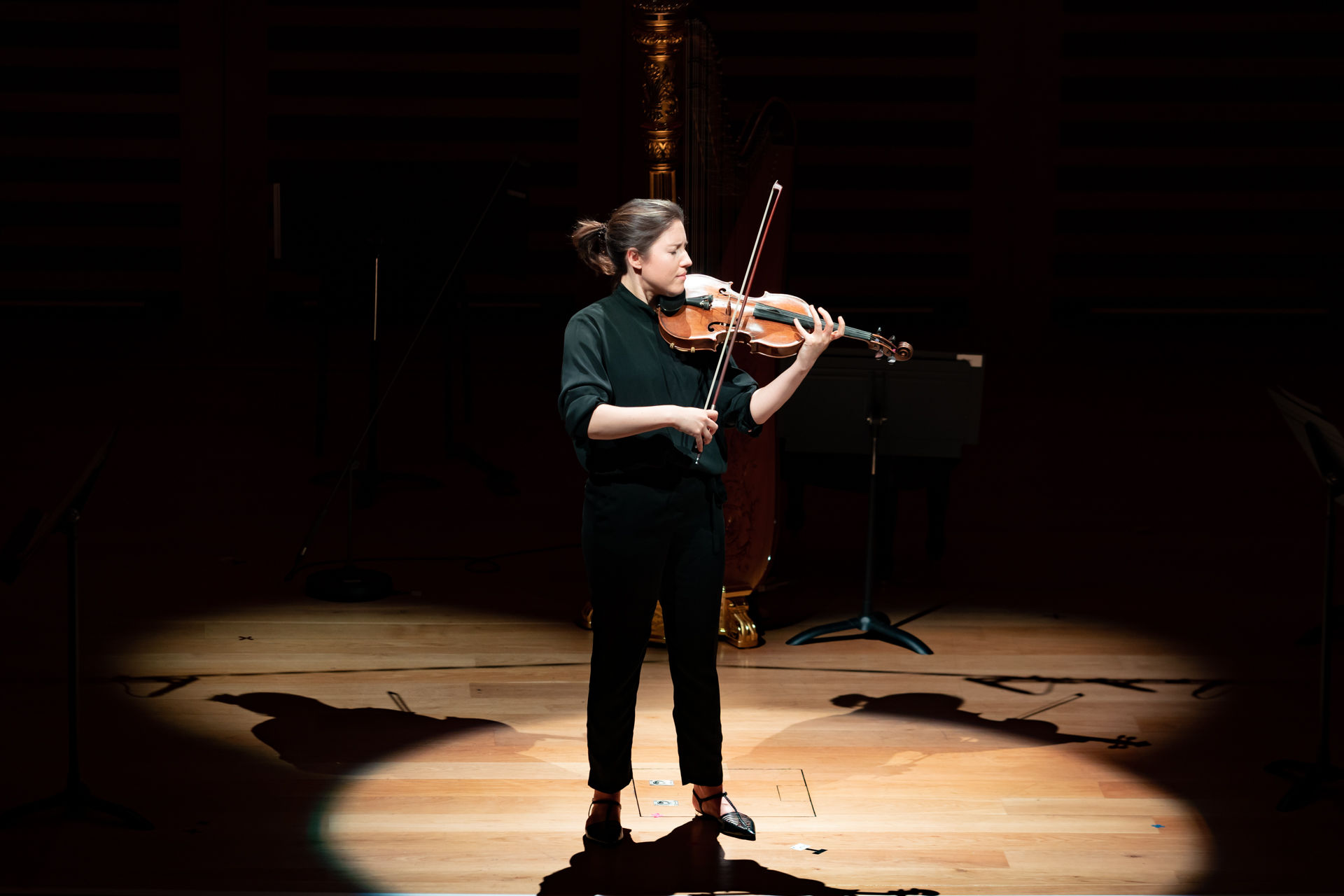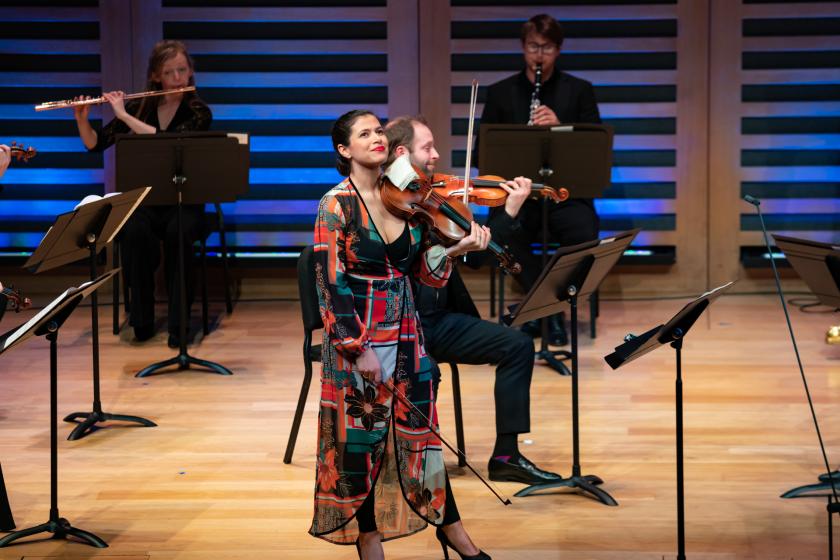The clever programming of the “Unwrapped” series has been transformational for the reputation of Kings Place. Ever since the Bach series in 2013 these year-long sequences of concerts and other events have succeeded in silencing the crustier commentators, and in putting the London arts venue properly on the map. This 13th series, “London Unwrapped”, got under way last night under restrictions, but it was so well done: the best of possible starts, it bodes well for a series that will go right through to New Year’s Eve.
It wasn’t just the thinking behind the concert programme which was so smart and worked so well; there was also sheer energy and joy in these performances. And these in turn were brought out by the way the stream was produced, in video production of a quality and empathy for the music and for the performers that eludes far too many livestreams. Here was a concert that it was impossible not to enjoy, and on many levels.
For sheer verve, the final piece, Mendelssohn’s String Octet of 1825 (players pictured above) had everything. Hearing a performance of this passion and quality, one wonders why there aren’t more children in the world called Felix. The first violin, Benjamin Marquise Gilmore, had stepped in for this performance at less than 48 hours notice, and his total technical security and authority as performer shone through. All that fast fugal fingerwork, those many hundreds of quavers in the final presto seemed to just slip out effortlessly, always perfectly in tune. What a superb violinist. And the video close-ups of the other performers showed how they were responding to the sheer quality of his leadership of the section. The darting and alert eyes of violist Ruth Gibson or an occasional appreciative chuckle of delight from first cellist Sébastien van Kuijk brought this performance to life for the viewer. Or cellist Reinoud Ford would give a gaze full of mystery and menace as he introduced a low-lying cello figure. To have achieved all this close observation – as far as I could see using only fixed cameras – seems nothing short of a miracle.
Yes, one misses the experience of the live performance. And of course, at its heart, Hall One is an acoustic space designed for classical music, but these production values bring the viewer/listener close to the experience in a different way.
A programming masterstroke was to introduce a brand new chamber version of Vaughan Williams’ The Lark Ascending by Iain Farrington, which uses an instrumentation derived from the Introduction and Allegro by Maurice Ravel, Vaughan Williams’ teacher in 1907-1908, with the addition of an extra three string players. The arrangement worked very well indeed, and soloist Elena Urioste conveyed passion with an unfailing ability to hold the listener’s attention. Here again, the video close-ups brought out the quality. I think I will hold in mind the image of the wing-like fluttering of her fingers at the beginning of the final cadenza for a very long time.
The Ravel itself was a beautiful performance, with the focused timbre in the lower register from Australian-born clarinettist Benjamin Mellefont a particular delight. Harpist Sally Pryce dictated the pacing of the meditative sections with real poise and vision. The concert had opened with a miniature, Thea Musgrave's Light at the End of the Tunnel for solo viola. Musgrave’s ever-present tautness of thought as composer and the engagement of Ruth Gibson (pictured above) made it memorable. Anna Meredith’s angular, asymmetrically edgy and short string quartet piece Music for Ravens - “scratchy music of avian frustration” as Tom Service described it - brought out a strong performance.
The concert had opened with a miniature, Thea Musgrave's Light at the End of the Tunnel for solo viola. Musgrave’s ever-present tautness of thought as composer and the engagement of Ruth Gibson (pictured above) made it memorable. Anna Meredith’s angular, asymmetrically edgy and short string quartet piece Music for Ravens - “scratchy music of avian frustration” as Tom Service described it - brought out a strong performance.
Aurora Orchestra, through the influence of Creative Director Jane Mitchell, have always set a very high standard for ensuring that the dramaturgy of a performance never sags. Here, the onus of providing continuity through all the changes of stage seating fell on Tom Service. He does both the scripted and the vamp-till-ready commentary with enthusiasm and knowledge. It is neither an easy nor a simple role to get right; I enjoyed it and thought it added a lot.














Comments
Add comment